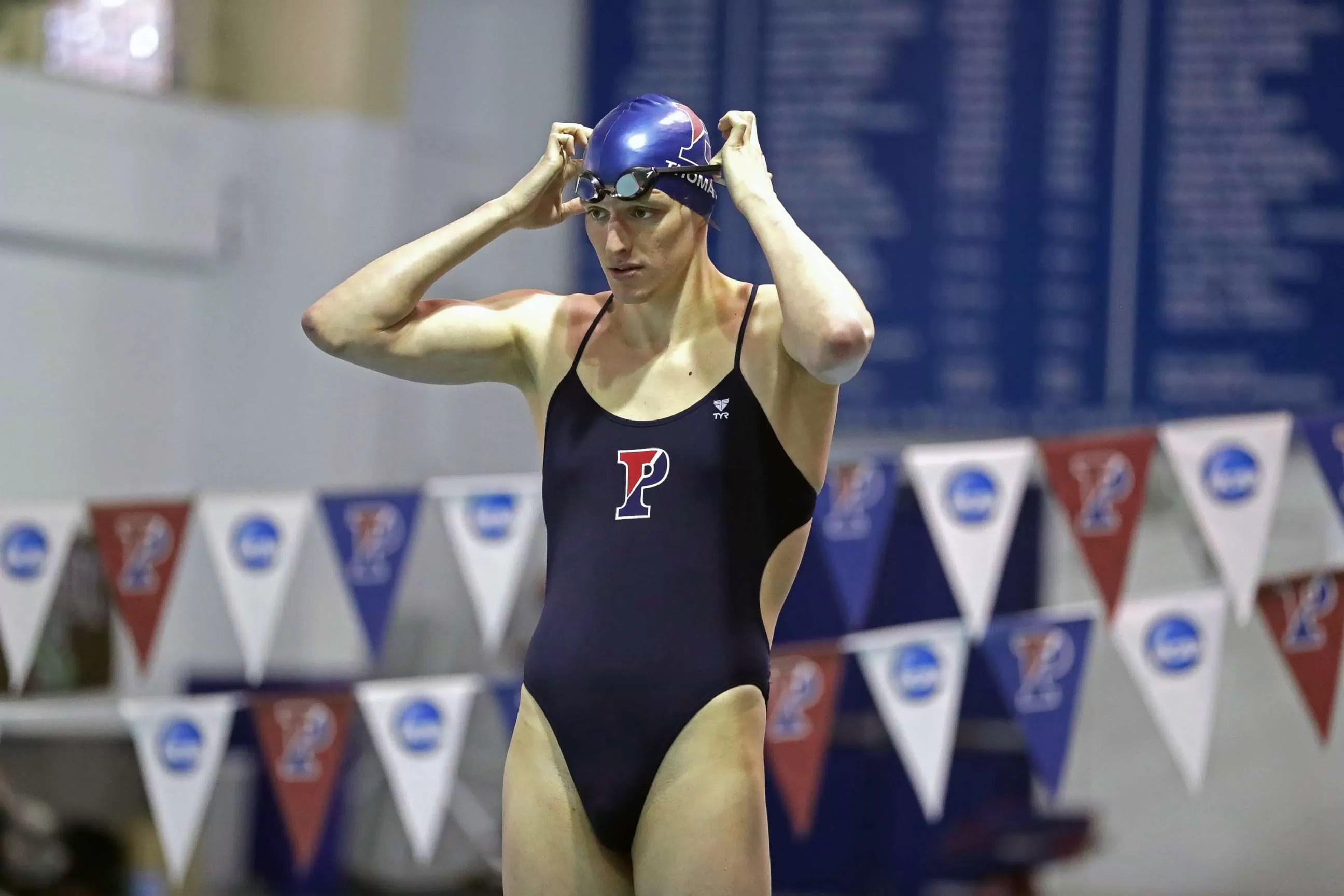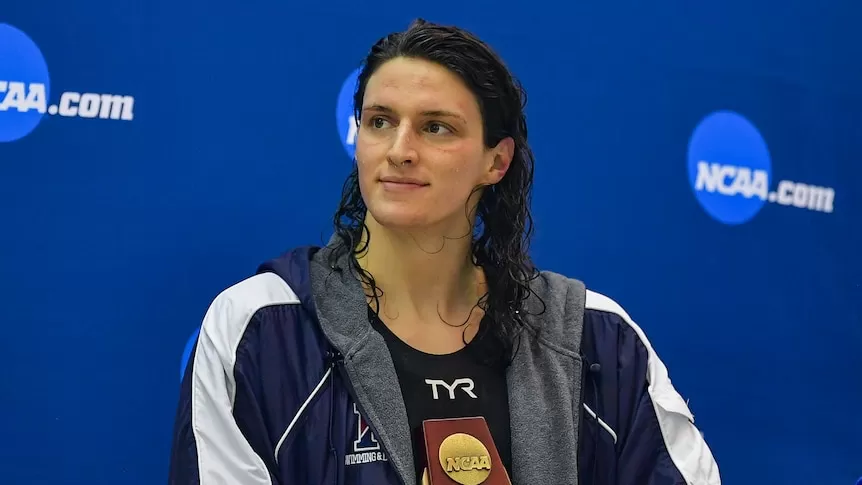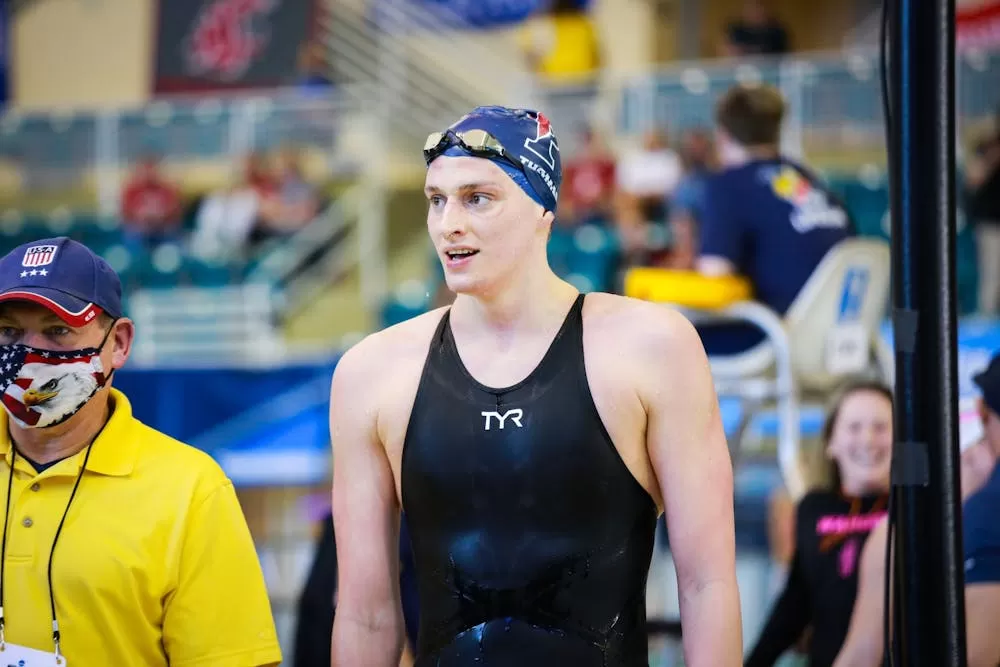BREAKING NEWS: NCAA Strips Lia Thomas of Her Title and Medals; Riley Gaines to Receive All Awards Back Thanks to External Forces
In a stunning and highly controversial move, the NCAA has officially stripped Lia Thomas of her swimming title and all related medals, a decision that has ignited a fierce debate across the sports world.
The action follows mounting pressure from various external groups advocating for a reassessment of Thomas’s participation in women’s collegiate swimming, particularly due to her transgender identity.
As a result of the NCAA’s ruling, Riley Gaines, who had finished second to Thomas in the event, will now be awarded all of the titles and accolades that were previously granted to Thomas.
The Controversy Surrounding Lia Thomas
Lia Thomas, a transgender swimmer from the University of Pennsylvania, made headlines in 2022 when she became the first openly transgender athlete to win an NCAA Division I championship in an individual event, capturing the women’s 500-yard freestyle title.

The victory was met with both applause and backlash. While many celebrated Thomas’s achievement as a victory for transgender athletes, others raised concerns about fairness in women’s sports.Critics argued that Thomas, who had competed for years as a male swimmer before transitioning, held a physical advantage over cisgender women due to factors such as muscle mass, size, and cardiovascular capacity.
The debate over Thomas’s eligibility to compete in women’s events sparked widespread conversation about how best to balance inclusion with fairness in competitive sports.
The issue became even more contentious as Thomas continued to break records and win titles in the women’s category, eventually becoming one of the most polarizing figures in the sports world.
The NCAA’s Decision: A Turning Point
In a move that has taken the sports community by surprise, the NCAA has officially announced the revocation of Lia Thomas’s title and all medals earned during her time as a competitor in women’s collegiate swimming.
The decision, according to a statement from the NCAA, comes after “intensive consultations with various governing bodies, advocacy groups, and stakeholders in the world of athletics.”
The governing body cited concerns over maintaining a “level playing field” for all competitors, with particular emphasis on fairness for cisgender women in the sport.

The ruling effectively means that all of Thomas’s records will be erased from the NCAA’s official history books, and any awards, including the gold medal she earned in the 500-yard freestyle event, will now be reassigned.
This decision has left many questioning the future of transgender athletes in competitive sports and whether this marks a shift toward stricter policies surrounding gender inclusivity.
While the NCAA’s move has been hailed by some as a step toward protecting the integrity of women’s sports, it has also faced significant backlash from those advocating for transgender rights and inclusion in athletics.
Advocates argue that the NCAA’s ruling represents a step backward in the fight for equality and that the decision undermines Thomas’s accomplishments.
Riley Gaines: The New Champion
The fallout from the NCAA’s decision has now placed Riley Gaines, a former swimmer at the University of Kentucky, in the spotlight.
Gaines, who finished second to Thomas in the 500-yard freestyle final at the 2022 NCAA Championships, will now be awarded the gold medal and the title of national champion, thanks to the NCAA’s ruling.
Gaines, who has been outspoken about the inclusion of transgender athletes in women’s sports, expressed mixed feelings about the NCAA’s decision.

While she welcomed the recognition of her achievement, she also acknowledged the complicated nature of the situation. “It’s a bittersweet moment,” Gaines said in an interview.
“I’m proud of the hard work I put in, but I also recognize that this situation goes beyond just one race. We need to have a broader conversation about what fair competition looks like and how to ensure that all athletes, regardless of gender, are able to compete on a level playing field.”
Gaines’s rise to the top is also being linked to the influence of “outside forces” that have championed her cause.
A coalition of athletes, coaches, and advocacy groups focused on preserving the integrity of women’s sports has played a key role in advocating for policies that limit the participation of transgender athletes in women’s competitions.
These groups have exerted significant pressure on the NCAA to reexamine its policies on transgender participation, and it appears that their efforts have ultimately led to the stripping of Thomas’s medals.
“Riley Gaines represents what fair competition should be about,” said one representative from a leading advocacy organization. “This is a victory not just for Riley but for all athletes who believe in fair play and the preservation of women’s sports.”
The Bigger Picture: A Controversial Moment for Sports
The NCAA’s decision to strip Lia Thomas of her titles has set off a firestorm of reactions, with many questioning the future of transgender athletes in competitive sports.

On one hand, the move has been applauded by those who argue that the integrity of women’s sports must be protected, with concerns over fairness taking center stage.
On the other hand, the decision has been sharply criticized by LGBTQ+ advocacy groups and those who view it as an affront to the rights of transgender individuals.
Some argue that policies regarding transgender athletes need to be more nuanced and that solutions should be sought that balance fairness with inclusion.
The issue is particularly challenging in sports where physical attributes such as muscle mass, height, and strength can offer advantages in certain events.
As the debate continues, it remains to be seen whether other governing bodies, including the International Olympic Committee, will follow the NCAA’s lead or develop their own guidelines to address the growing controversy.

While Lia Thomas’s story has been one of triumph and tragedy, the latest development is a reminder that sports—like society at large—are constantly evolving, and that the conversation around fairness, inclusivity, and the role of transgender athletes is far from over.
As Riley Gaines celebrates her new title, the question remains: How will this controversy affect the future of transgender athletes in all levels of competition?
The NCAA’s decision could very well set a precedent for other sports organizations and ignite further debate about how to create a more equitable and inclusive system for all athletes, regardless of gender or identity.





